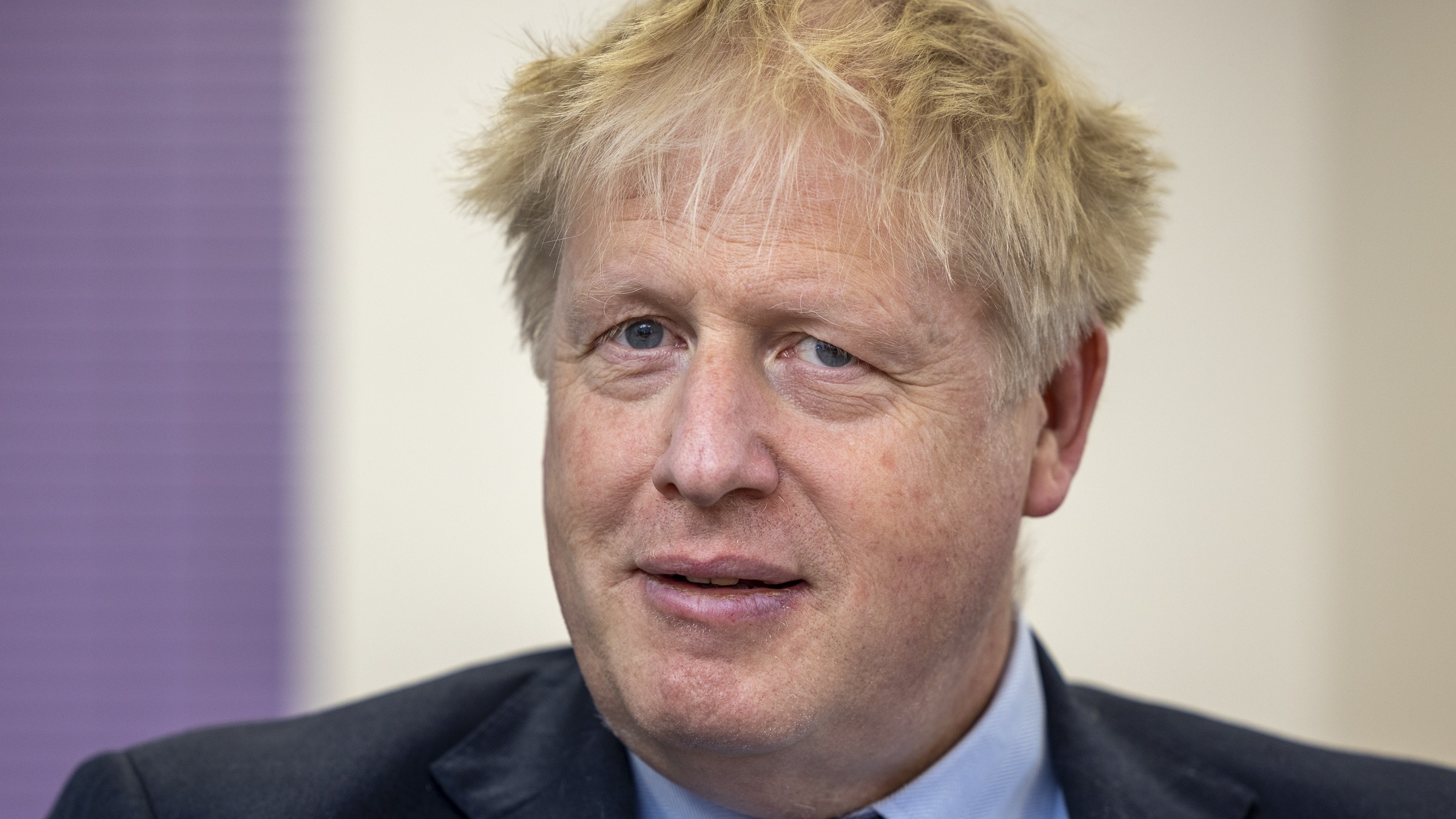Will Boris Johnson survive the fallout from Sue Gray’s report?
Five more Tory MPs call for prime minister to resign over Partygate

A free daily email with the biggest news stories of the day – and the best features from TheWeek.com
You are now subscribed
Your newsletter sign-up was successful
Boris Johnson has resisted calls to resign following the publication of Sue Gray’s report into lockdown-breaking Downing Street parties.
The senior civil servant found that there had been “failures of leadership and judgement in No. 10 and the Cabinet Office” for which “the senior leadership at the centre, both political and official, must bear responsibility”.
In a statement to the Commons after the publication of the report, the prime minister said he had been “humbled and I have learned a lesson”. But he denied ever knowingly misleading MPs about parties in Downing Street and sought to justify his attendance at a leaving party event because he considered it a part of his work.
The Week
Escape your echo chamber. Get the facts behind the news, plus analysis from multiple perspectives.

Sign up for The Week's Free Newsletters
From our morning news briefing to a weekly Good News Newsletter, get the best of The Week delivered directly to your inbox.
From our morning news briefing to a weekly Good News Newsletter, get the best of The Week delivered directly to your inbox.
No ‘smoking gun’?
Gray’s report is certainly “damaging” for the prime minister, said political editor Kevin Schofield on HuffPost. But it was “not fatal”.
The revelations contained in the report may have been “embarrassing”, revealing a “debauched culture inside Downing Street, with red wine on the walls and staffers drinking so much that they threw up”, he said. But in the end there was “no smoking gun about Johnson’s personal involvement”.
The Independent said that “three more Conservative MPs have submitted letters of no confidence” in Johnson after the publication of Gray’s report, bringing the number of letters believed to have been submitted to the chair of the 1922 committee to 21.
But that total is far from the 54 letters needed to bring about a no-confidence vote in the prime minister. And any plotting to move against Johnson is proceeding at glacial pace compared to “the sound and fury that characterised the one against Theresa May”, said The Guardian’s chief political correspondent Jessica Elgot.
A free daily email with the biggest news stories of the day – and the best features from TheWeek.com
While those meetings took “took place in crammed and sweaty meeting rooms and with public denunciations in front of amassed journalists”, the few “hoping to oust this prime minister tend to meet in pairs over bottles of wine in the Adjournment cafe or catch a quiet word in a corridor”, she added.
But while his own party remains ambivalent over whether to oust him, the British public seems much more certain that he should go. Some two-thirds of people believe he should resign given the findings from Gray’s report, according to a snap poll from Savanta ComRes.
No replacement for Johnson
The main reason Johnson’s allies believe he can weather the storm created by Gray’s findings “goes beyond the report’s contents”, said Katy Balls in The Guardian.
The Spectator’s deputy political editor said the “biggest reason” MPs will keep him in Downing Street “is the lack of an obvious replacement”, which means many Conservative members “backing him reluctantly”.
The report “may not change his position”, she added, but “it will add to concerns about the miserable situation the Tory party is now in”.
And he is likely to be “shielded” further by the war in Ukraine, with many Tory MPs – including some of his “most fervent critics” – claiming that a leadership contest cannot happen while the Russian invasion is ongoing, said the i news site.
However, there are “millions of people” in the UK who believe Johnson has a “spark of political genius”, and is someone who can be “a force for good despite his managerial shortcomings”, said Stephen Glover in the Daily Mail. The question now is if he has “forfeited” the support of those millions “as a result of his behaviour over Partygate”.
Many “inveterate Boris fans” will “scoff” at the idea, Glover added, believing that by the next election “the shenanigans in No 10 will have faded from the public memory and people will only care about tax and the cost of living”.
Yet “many reasonable people will reflect that it was Boris Johnson who presided over these Bacchanalian excesses, and must therefore bear ultimate responsibility for them”.
Sorcha Bradley is a writer at The Week and a regular on “The Week Unwrapped” podcast. She worked at The Week magazine for a year and a half before taking up her current role with the digital team, where she mostly covers UK current affairs and politics. Before joining The Week, Sorcha worked at slow-news start-up Tortoise Media. She has also written for Sky News, The Sunday Times, the London Evening Standard and Grazia magazine, among other publications. She has a master’s in newspaper journalism from City, University of London, where she specialised in political journalism.
-
 Political cartoons for February 20
Political cartoons for February 20Cartoons Friday’s political cartoons include just the ice, winter games, and more
-
 Sepsis ‘breakthrough’: the world’s first targeted treatment?
Sepsis ‘breakthrough’: the world’s first targeted treatment?The Explainer New drug could reverse effects of sepsis, rather than trying to treat infection with antibiotics
-
 James Van Der Beek obituary: fresh-faced Dawson’s Creek star
James Van Der Beek obituary: fresh-faced Dawson’s Creek starIn The Spotlight Van Der Beek fronted one of the most successful teen dramas of the 90s – but his Dawson fame proved a double-edged sword
-
 How corrupt is the UK?
How corrupt is the UK?The Explainer Decline in standards ‘risks becoming a defining feature of our political culture’ as Britain falls to lowest ever score on global index
-
 The high street: Britain’s next political battleground?
The high street: Britain’s next political battleground?In the Spotlight Mass closure of shops and influx of organised crime are fuelling voter anger, and offer an opening for Reform UK
-
 Is a Reform-Tory pact becoming more likely?
Is a Reform-Tory pact becoming more likely?Today’s Big Question Nigel Farage’s party is ahead in the polls but still falls well short of a Commons majority, while Conservatives are still losing MPs to Reform
-
 Asylum hotels: everything you need to know
Asylum hotels: everything you need to knowThe Explainer Using hotels to house asylum seekers has proved extremely unpopular. Why, and what can the government do about it?
-
 Taking the low road: why the SNP is still standing strong
Taking the low road: why the SNP is still standing strongTalking Point Party is on track for a fifth consecutive victory in May’s Holyrood election, despite controversies and plummeting support
-
 Behind the ‘Boriswave’: Farage plans to scrap indefinite leave to remain
Behind the ‘Boriswave’: Farage plans to scrap indefinite leave to remainThe Explainer The problem of the post-Brexit immigration surge – and Reform’s radical solution
-
 Is Andy Burnham making a bid to replace Keir Starmer?
Is Andy Burnham making a bid to replace Keir Starmer?Today's Big Question Mayor of Manchester on manoeuvres but faces a number of obstacles before he can even run
-
 What difference will the 'historic' UK-Germany treaty make?
What difference will the 'historic' UK-Germany treaty make?Today's Big Question Europe's two biggest economies sign first treaty since WWII, underscoring 'triangle alliance' with France amid growing Russian threat and US distance